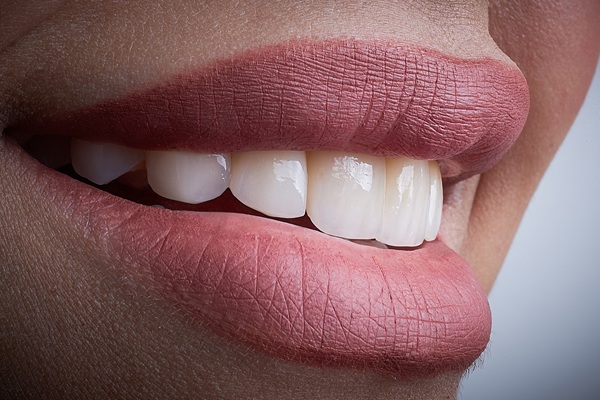TMJ Treatments From A General Dentist

TMJ disorders are known to be one of the most grueling, as they induce a lot of discomfort and difficulty eating. However, modern-day technology has allowed for a wide range of options when it comes to treatment plans. Working with a general dentist is typically the first step. As surprising as it may be, general dentists are actually the first point of contact for diagnosing and treating TMJ disorders.
Treatment for TMJ disorders
Outlined below are a few ways that general dentists treat TMJ disorders. Of course, the treatment plan will vary from patient to patient; however, the following information offers general guidelines to TMJ sufferers.
Mild cases of TMJ disorders
General dentists will typically treat mild cases of TMJ disorder via a few different avenues, based on the patient's symptoms. Mild cases tend to induce symptoms such as difficulty eating or speaking, jaw clicking and slight discomfort. Outlined below are a few treatment options that a general dentist may suggest and/or prescribe.
- Hot and cold therapy
- Low doses of muscle relaxers
- Oral splints
- Jaw exercises
- Over-the-counter anti-inflammatory medications
In most scenarios, the dentist may recommend one of the treatment options above; however, a lot of the time, it is trial and error. Multiple treatments may need to be done together in order to get the most effective results. For example, some patients may require a muscle relaxer and oral splint at the same time.
Moderate cases of TMJ disorders
TMJ disorders that cause more moderate symptoms may require an in-depth treatment plan. Moderate cases present themselves via chronic pain, jaw locking, teeth grinding and headaches. The following treatment options would be considered in conjunction with or following the ones listed under the mild category.
- Higher doses of muscle relaxers
- Oral physical therapy
- Custom-made night guards to prevent teeth grinding
- Pain medications
- Acupuncture
A lot of TMJ disorder sufferers experience moderate to severe symptoms, which can be detrimental to oral health and overall comfort. When symptoms become severe, serious treatment may have to be explored.
Severe cases of TMJ disorders
General dentists can provide a number of treatments to sufferers of TMJ disorders, with the most severe options being rarer. Outlined below are some of the most severe treatment options for TMJ disorders.
- Open-joint surgery
- Facial injections
- TMJ arthroscopy
- Modified condylotomy
Of course, general dentists will start with mild to moderate treatments; however, individuals who suffer from chronic TMJ disorder may require more in-depth procedures in order to eliminate the pain and dysfunction that comes with the disorder.
Find out more from a general dentist
Want further information on treating TMJ disorders? Talking with a general dentist is the best place to start. Any questions or concerns can be addressed, and an evaluation can be done in order to determine the most appropriate course of action. Reach out today to find out more about TMJ disorder treatment or to get scheduled for a consultation appointment with the dentist.
Request an appointment here: https://alamedadentalaurora.com or call Alameda Dental at (303) 343-7072 for an appointment in our Aurora office.
Check out what others are saying about our dental services on Yelp: TMJ Treatments in Aurora, CO.
Recent Posts
Patients often ask about TMJ treatment options when jaw pain, clicking, or headaches disrupt everyday life. The temporomandibular joint (TMJ) links the lower jaw to the skull and powers chewing, speech, and yawning. When the joint or the surrounding muscles become overworked or inflamed, symptoms can include jaw stiffness, ear fullness, limited opening, and facial…
You may not think much about TMJ disorder unless a dentist diagnoses you with it. This is a serious condition that can cause much pain and discomfort. Untreated, this disorder can make it difficult to chew and even speak. Instead of suffering and being in agony, you can speak to your dentist. Fortunately, relief is…
TMJ refers to the temporomandibular joint, which is located near the jawline. When there is any sort of malfunction with the joint, the result is TMJ disorder. Sufferers of TMJ disorder tend to experience pain and difficulty performing things such as eating, smiling and speaking. TMJ pain has treatment options, including wearing oral appliances, practicing self-care…
One of the leading causes of anxiety surrounding dental procedures is a fear of pain. However, most offices provide several pain management options for patients undergoing more intense dental work. In many situations, injections are an efficient and effective form of anesthesia for several common procedures, such as fillings, crowns and root canals.When a dentist…


